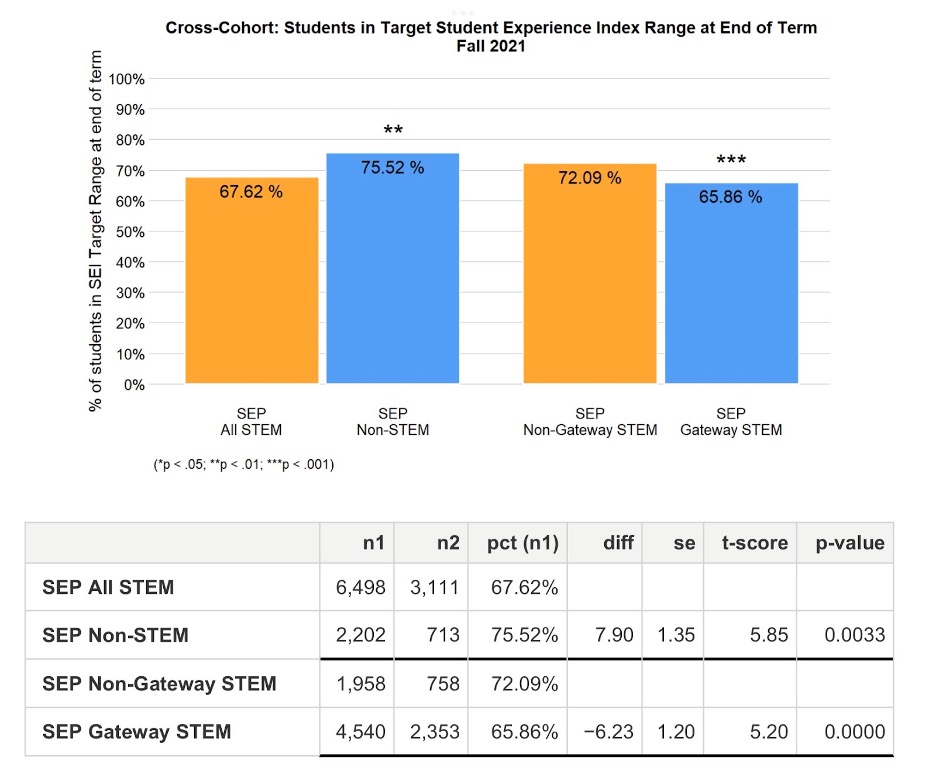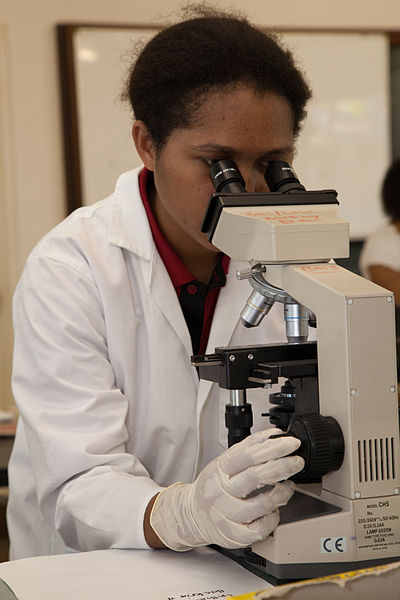By Miyawni Curtis & Mariah Baca
Bridgette Hall really wanted to be a biologist. She was excited to be in school and interested in her classes but found herself overwhelmed with the amount of work—more than 150 questions a week. And she didn’t think it was easy to get help, so she dropped the major.
“I think better engagement with the students would have changed my experience,” Hall said.
She’s just one of many students who quit a major or drop out of college in New Mexico. But now a new program is succeeding in keeping more students in school.
A majority of students who enter college in New Mexico don’t complete their degrees. In fact, New Mexico ranks 47th in the country for college completion, according to a recent report.
The problem is more pronounced in these demanding fields. According to UNM’s own data, 32% of STEM majors switched to non-STEM majors after the first year. Now, UNM has plans to train teachers and improve these outcomes.
UNM is one of six schools that has partnered with the Student Experience Project (SEP) to help provide every student with an equal opportunity to graduate from college.
Since joining the program in 2020, more than 100 faculty members across the university have participated in training sessions that show instructors how to help students do better, feel better and succeed.
SEP’s mission is to help transform the college experience by improving equality in the classroom, so that every student can feel that they belong and receive the support that they need to succeed in their college career.
And it’s working. Students in participating classes were 26% more likely to earn As or Bs, and 22% less likely to fail or drop late.
The SEP approach is based on years of social psychology research which shows that mindsets, equity and a sense of belonging all play an important role in students’ success.
STEM occupations play a large part in the state’s economy but there is a shortage of people who have the skills and education to fill these jobs.
Sushilla Knottenbelt, a professor in the Department of Chemistry and Chemical Biology is one of the leaders of the SEP project, but she was also once a student.
“I was an international student at the University of York, coming straight from a small town in Zimbabwe. I didn’t know anyone at all at the University and there were definitely some moments where I felt lonely and out of place because I didn’t have the shared cultural background that it seemed like everyone else had growing up,” Knottenbelt said.
She ultimately came to love chemistry and achieve a doctorate degree. Now she wants to help students with the support to improve their college experience.
The program uses a student experience survey tool to monitor how students respond to various interventions to improve classroom culture. “I have seen increases in student experience over several semesters using this survey,” Knottenbelt said.

Recent findings from a report conducted by the Student Experience Project shows faculty are essential in improving students’ experience and creating institutional change. On average, students tend to perform better in STEM classes taught by an instructor who communicates positive affirmations about the ability to succeed in the course.
When the right resources and support are provided by faculty, it can meaningfully improve students’ experience, which in turn improves academic outcomes and engagement.
Institutions partnered with the Student Experience Project encourage faculty to use practices that encourage students’ ability to learn and grow. According to this presentation by the UNM Student Experience Project, instructors are taking effective measures that include revising course syllabi, providing “wise feedback” on student’s work and increasing diverse representation in the course material.
The Student Experience Project aims to help future students who want to pursue a degree in the STEM field like Bridgette Hall once did, have a better and more successful experience. If Bridgette Hall would have had the support and resources that the SEP provides during her time as a STEM student, she would have had a better chance at being successful in her classes.
As a University and State, we can learn from the past and make improvements, so that all students have what they need in order to succeed. The SEP is a step in the right direction to improving student outcomes.
The next round of fellows for the project will receive a $1,000 stipend for participating in a one-semester commitment that includes monthly meetings with a community of fellows, two summer workshops, and some asynchronous online training.
